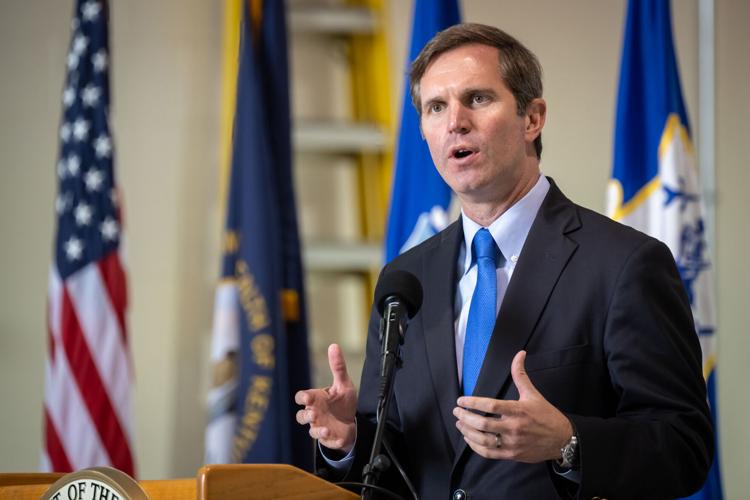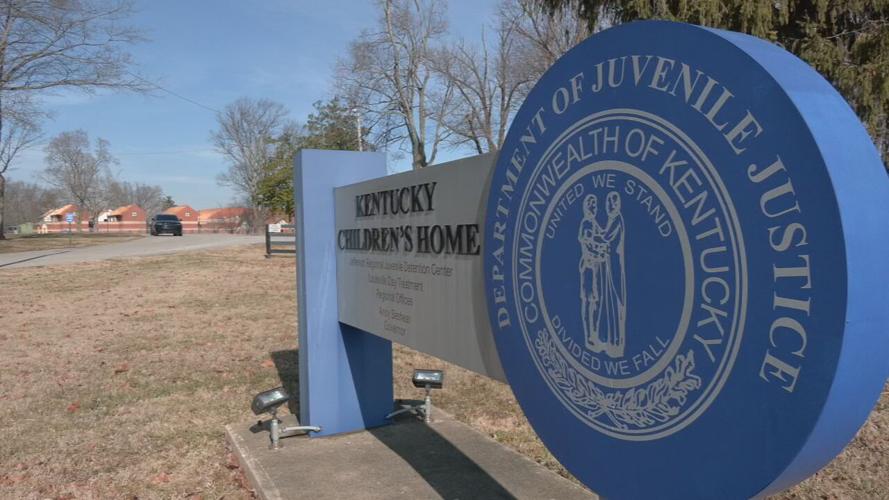LOUISVILLE, Ky. (WDRB) -- The way Kentucky handles some young offenders in its juvenile jails is changing, effective immediately.
The state's Department of Juvenile Justice is now required to do more frequent medical and mental health checks on the children in restrictive housing—formerly known as isolation—in an effort to prioritize the safety and mental health of detained juveniles.
Gov. Andy Beshear signed two emergency regulations Thursday, Sept. 25—focused on "enhanced mental health outcomes through proper use of restrictive housing policies"—putting the new policy in place.
"It'll also mandate all DJJ staff are trained on this new policy and that isolation isn't excessively used, is only used in the most appropriate circumstances and that it is used safely and effectively," Beshear said.
The regulations also require DJJ leadership reviews and approves time limits, providing "clearer guidelines to ensure the measure is being used safely and effectively."
The U.S. Department of Justice has previously recommended that Kentucky make changes to its procedures at juvenile jails. Among those changes, the Department of Juvenile Justice is expanding training for correctional staff, emphasizing de-escalation, relationship building and understanding personal triggers. The department also now has a full staff of mental health professionals, and said retention has improved since raising salaries for correctional officers to $50,000 a year.
"For years, the juvenile justice system was overlooked, and now we're making sweeping changes to overhaul the system to enhance safety and help more kids reach the second chance they deserve," Beshear said in a news release. "From supporting the hardworking DJJ staff who show up every day, to offering more opportunities for youth and addressing needs like mental health, I am proud of the progress we're making."
The state's juvenile justice system was under a statewide civil investigation by the DOJ into the conditions at eight youth detention centers and a youth development center in Kentucky in mid-May 2024, in response to allegations of institutional abuse and mistreatment of children. Kentucky Auditor Allison Ball also conducted an audit of the department in 2024, which revealed problems with use of force and isolation in the state's juvenile jails.
"I am pleased to see that after a 2024 comprehensive audit from my office and a (President Joe) Biden administration investigation that began that same year, Governor Beshear has finally updated regulations governing the Department of Juvenile Justice's conduct," Ball said in a statement. "The audit revealed harsh and alarming conditions in DJJ facilities. Kentucky's youth deserve better, and my office will closely monitor whether these regulations actually address the findings of my audit."
Changes were made to the state's juvenile justice system after a riot broke out in 2022 at a detention center, causing injuries to some young people and staff. Order was restored after state police and other law enforcement officers entered the facility. In another incident, some juveniles kicked and punched staff during an attack at another center.
Beshear responded to the riot with a series of policy changes to try to quell the violence. He announced that male juveniles would be assigned to facilities based on the severity of their offenses, and “defensive equipment” — pepper spray and Tasers — was provided for the first time so detention center workers could defend themselves and others if attacked.
In 2024, the state’s Republican-dominated legislature passed legislation and pumped additional money into the system to try to overcome the chronic problems. The legislation added stricter rules for youths charged with or convicted of violent crimes. Lawmakers appropriated money to boost salaries for juvenile justice employees, hire more DJJ correctional officers, upgrade security at detention centers and increase diversion and treatment services for detained youths. The appropriations reflected much of the funding requests from Beshear’s administration to retain and recruit workers in the understaffed facilities.
This comes as the Jefferson Regional Juvenile Detention Center in Louisville undergoes a $40 million renovation. The jail closed in 2019, and is not expected to reopen under state control until 2027. The DOJ is expected to have issued new rules on how Kentucky handles juvenile offenders by then.
To read more about the Beshear administration's changes to the state's juvenile justice system, click here to read Thursday's news release.
Related Coverage:
Kentucky's juvenile justice system undergoing overhaul amid rising youth gun violence
Louisville's recent teenage violence renews push to reopen juvenile jail
Department of Juvenile Justice eyeing new facility to address youth mental health
Kentucky youth incarceration rates drop, but challenges persist in juvenile justice system
A counselor staffing 'crisis' in Kentucky's juvenile jails could lead to recidivism, expert says
New report reveals problems with use of force, isolation in Kentucky juvenile jails
Louisville's Youth Detention Center showing signs of neglect ahead of renovations, reopening
Beshear signs off on legislation that would reopen Louisville's Youth Detention Center
Design of renovated juvenile detention center in Louisville nearly complete
Louisville is years away from opening renovated juvenile detention center
Copyright 2025 WDRB Media. All Rights Reserved.















